Industrial Water Heating Elements
Industrial Water Heating Elements Specification
- Mounting Type
- Threaded / Flanged / Immersion
- Usage
- Industrial Water Heating
- Temperature
- Up to 350C
- Frequency
- 50 Hz
- Features
- Corrosion Resistant, Fast Heating, High Durability, Uniform Heating
- Diameter
- 8 mm to 16 mm
- Terminal Type
- Screw Terminal / Spade Terminal
- Voltage
- 220VAC / 240VAC / 415VAC
- Phase
- Single & Three Phase
- Application Areas
- Industrial Water Heating, Boilers, Tanks, Chemical Processing
- Heating Element
- Tubular Heating Element
- Material Specified
- Stainless Steel / Incoloy / Copper
- Insulation Material
- High-quality Magnesium Oxide (MgO)
- Shape
- U Shape / Straight / Customized
- Power
- 500 W to 6000 W
- Thermal Response Time
- Rapid (within seconds)
- Surface Finish
- Polished / Matt
- Replacement Compatibility
- Compatible with multiple industrial brands
- Protection Class
- IP55 / IP65
- Ambient Operating Conditions
- -10°C to 50°C
- Sealing Type
- Epoxy / Silica Sealing
- Max Working Pressure
- 10 bar
- Lead Length
- 300 mm (customizable)
- Connection Leads
- Nickel-Plated Copper
- Length
- 200 mm to 1500 mm
Industrial Water Heating Elements Trade Information
- Minimum Order Quantity
- 5 Units
- Payment Terms
- Cash Advance (CA), Cash in Advance (CID)
- Supply Ability
- 1000 Units Per Week
- Delivery Time
- 7 Days
- Sample Available
- Yes
- Sample Policy
- Sample costs shipping and taxes has to be paid by the buyer
- Main Export Market(s)
- Asia, Australia, Central America, North America, South America, Eastern Europe, Western Europe, Middle East, Africa
- Main Domestic Market
- , All India, South India, Central India, West India, North India, East India, Gujarat, Karnataka, Kerala, Lakshadweep, Mizoram, Meghalaya, Manipur, Andhra Pradesh, Bihar, Chandigarh, Daman and Diu, Goa, Jharkhand, Odisha, Punjab, Assam, Delhi, Dadra and Nagar Haveli, Andaman and Nicobar Islands, Arunachal Pradesh, Chhattisgarh, Haryana, Himachal Pradesh, Jammu and Kashmir, Madhya Pradesh, Maharashtra, Nagaland, Rajasthan, Sikkim, Tamil Nadu, Telangana, Tripura, Pondicherry, Uttar Pradesh, Uttarakhand, West Bengal
About Industrial Water Heating Elements
Description
Industrial water heating elements are specialized devices designed to heat water for various industrial applications. They are crucial in processes such as manufacturing, food processing, chemical production, and HVAC systems. These elements come in various forms, including:
- Immersion Heaters: Directly placed in the water, providing efficient heat transfer.
- Inline Heaters: Used in piping systems to heat water as it flows through.
- Steam Heating Elements: Utilize steam to heat water, ideal for large-scale operations.
Key Features
- Material: Typically made from stainless steel, copper, or Incoloy, chosen for durability and resistance to corrosion.
- Watt Density: The amount of power output per square inch of the heating element, influencing heating efficiency and lifespan.
- Voltage Ratings: Available in various voltages to match specific industrial requirements.
- Control Systems: Often equipped with thermostats or digital controllers for precise temperature regulation.
- Safety Features: May include over-temperature protection, automatic shutoff, and leakage detection systems.
FAQs
1. What applications use industrial water heating elements?
- Common applications include food and beverage processing, chemical production, power generation, and wastewater treatment.
2. How do I choose the right water heating element?
- Consider factors such as the required temperature range, water volume, flow rate, and specific application needs. Consulting a heating element supplier can also help in making the right choice.
3. What maintenance is required for these elements?
- Regular inspections for scaling or corrosion, ensuring proper insulation, and checking electrical connections are essential for maintaining efficiency and safety.
4. Can these elements be used for potable water?
- Yes, but it's important to ensure that the materials used are compliant with local health and safety regulations for potable water systems.
5. How do I determine the required wattage for my application?
- The wattage needed depends on the volume of water, desired temperature rise, and heating time. Calculating using the formula:
Wattage=Time (hours)3600Volume (gallons)Temperature Rise (F)8.34
6. What are the common causes of failure in heating elements?
- Common issues include overheating, mineral buildup, inadequate water flow, and electrical malfunctions. Regular maintenance can mitigate these risks.
7. How energy-efficient are industrial water heating elements?
- Energy efficiency varies by design and application. Immersion heaters generally provide higher efficiency due to direct contact with water, whereas inline heaters may be less efficient but offer more versatility in installation.
8. What safety standards should these elements meet?
- Industrial water heating elements should comply with safety standards such as UL, CE, and other relevant local regulations to ensure safe operation.
Durable Construction & Versatile Design
Fabricated from top-grade stainless steel, Incoloy, or copper, these heating elements resist corrosion and withstand harsh industrial environments. Their polished or matt surface finish and customizable shapes-U, straight, or bespoke-make them suitable for multiple installation requirements, accommodating various tanks and boiler designs.
Efficient Performance & Rapid Heating
Equipped with high-quality magnesium oxide insulation, these elements deliver rapid heating and uniform temperature distribution. Their fast thermal response minimizes downtime in industrial water heating processes, maintaining efficiency and reducing energy consumption across multiple applications.
Superior Protection & Reliability
With protection ratings of IP55 or IP65 and high durability at up to 10 bar pressure, these heating elements ensure safe and continuous operation in challenging conditions. The nickel-plated copper leads and secure sealing methods (epoxy/silica) further enhance reliability, longevity, and compatibility across numerous industrial brands.
FAQ's of Industrial Water Heating Elements:
Q: How are industrial water heating elements installed in boiler or tank systems?
A: Installation typically involves mounting the heating element using threaded, flanged, or immersion fittings, which accommodate a variety of boiler or tank configurations. Customized lead lengths and terminal options (screw or spade) allow for flexible wiring and integration into existing systems.Q: What materials are used in these heating elements, and how do they benefit industrial applications?
A: These elements are constructed from corrosion-resistant stainless steel, Incoloy, or copper. Such materials ensure high durability, performance in harsh environments, and optimal heat transfer for industrial water heating, chemical processing, and tank heating systems.Q: When should you replace a water heating element in industrial equipment?
A: Replacement is recommended when you observe diminished heating efficiency or element failure. Our elements are compatible with multiple industrial brands, making the upgrade process straightforward without downtime, and maintaining system reliability.Q: Where can these heating elements be used?
A: They are designed for industrial boilers, water tanks, chemical processing facilities, and similar applications where uniform, high-temperature heating is required. Their versatility makes them suitable for various global industrial sectors.Q: What is the process of customizing lead length or shape for specific applications?
A: Lead lengths can be tailored to 300 mm or other requirements during manufacturing. Shape customization (U, straight, or bespoke) is available, ensuring compatibility with specific equipment and optimized heat distribution as needed.Q: How does the rapid thermal response benefit industrial operations?
A: A fast thermal response means the heating element reaches operating temperature within seconds, reducing waiting periods, enhancing process efficiency, and minimizing energy costs for continuous industrial applications.Q: What safety and protection features do these heating elements offer?
A: With IP55/IP65 protection class and robust epoxy or silica sealing, these elements are resistant to water and dust ingress. High-quality insulation and secure connections further safeguard against operational hazards, ensuring long-term durability.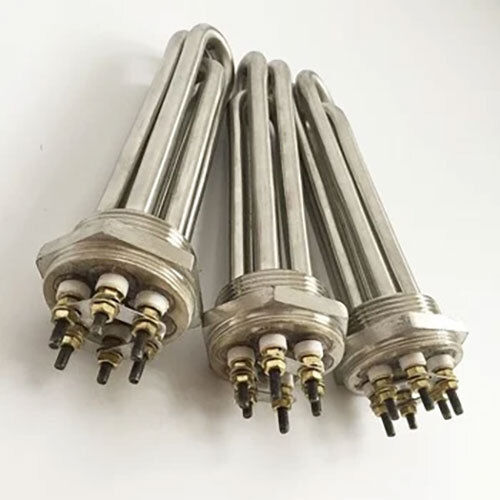
Price 2400 INR/ Unit
- Minimum Order Quantity
- 5 Units
- Supply Ability
- 1000 Units Per Week
- Delivery Time
- 7 Days
- Main Domestic Market
- , All India, South India, Central India, West India, North India, East India, Gujarat, Karnataka, Kerala, Lakshadweep, Mizoram, Meghalaya, Manipur, Andhra Pradesh, Bihar, Chandigarh, Daman and Diu, Goa, Jharkhand, Odisha, Punjab, Assam, Delhi, Dadra and Nagar Haveli, Andaman and Nicobar Islands, Arunachal Pradesh, Chhattisgarh, Haryana, Himachal Pradesh, Jammu and Kashmir, Madhya Pradesh, Maharashtra, Nagaland, Rajasthan, Sikkim, Tamil Nadu, Telangana, Tripura, Pondicherry, Uttar Pradesh, Uttarakhand, West Bengal
- Main Export Market(s)
- Asia, Australia, Central America, North America, South America, Eastern Europe, Western Europe, Middle East, Africa

Price:
- 50
- 100
- 200
- 250
- 500
- 1000+
More Products in Immersion and Circulation Heaters Category
Flange Oil Immersion Heaters
Price 1500.0 INR
Minimum Order Quantity : 5
Insulation Material : High Grade Magnesium Oxide (MgO)
Power : 1 kW to 20 kW
Shape : UShaped / LShaped / Straight
Material Specified : Other, Stainless Steel / Mild Steel / Incoloy
Immersion Heater With Flame Proof Junction Box
Price 1250.0 INR
Minimum Order Quantity : 5
Insulation Material : MGO (Magnesium Oxide)
Power : 3 KW
Shape : Straight
Material Specified : Other, Stainless Steel (SS 304 / SS 316)
Tube Oil Heater
Price 1500.0 INR
Minimum Order Quantity : 5
Insulation Material : MGO (Magnesium Oxide)
Power : 1000 W
Shape : Tubular
Material Specified : Other, Stainless Steel
Porcelain Heaters
Price 700.0 INR
Minimum Order Quantity : 4
Insulation Material : Ceramic
Power : up to 2 kW
Shape : Tubular
Material Specified : Other, Porcelain


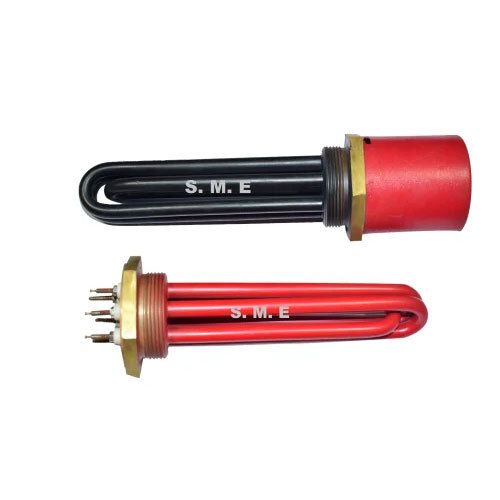
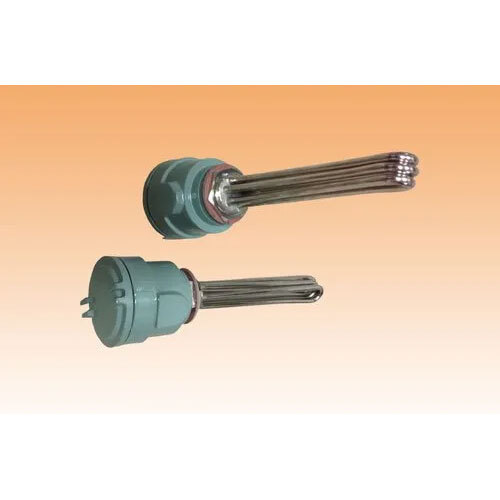
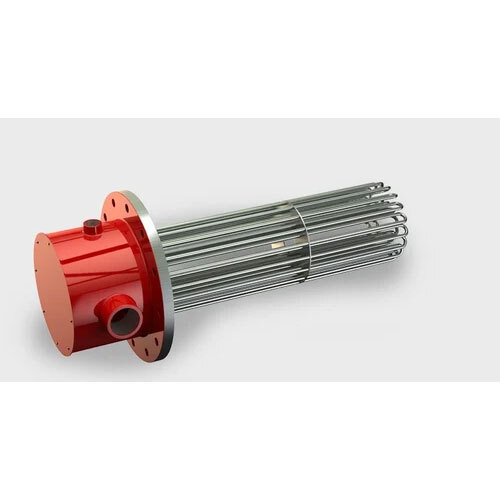
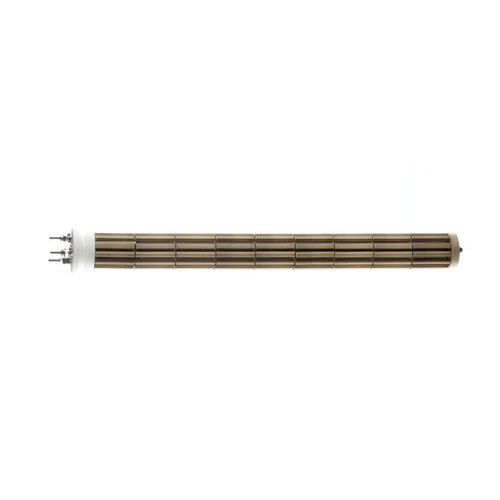
 Send Inquiry
Send Inquiry Send SMS
Send SMS
